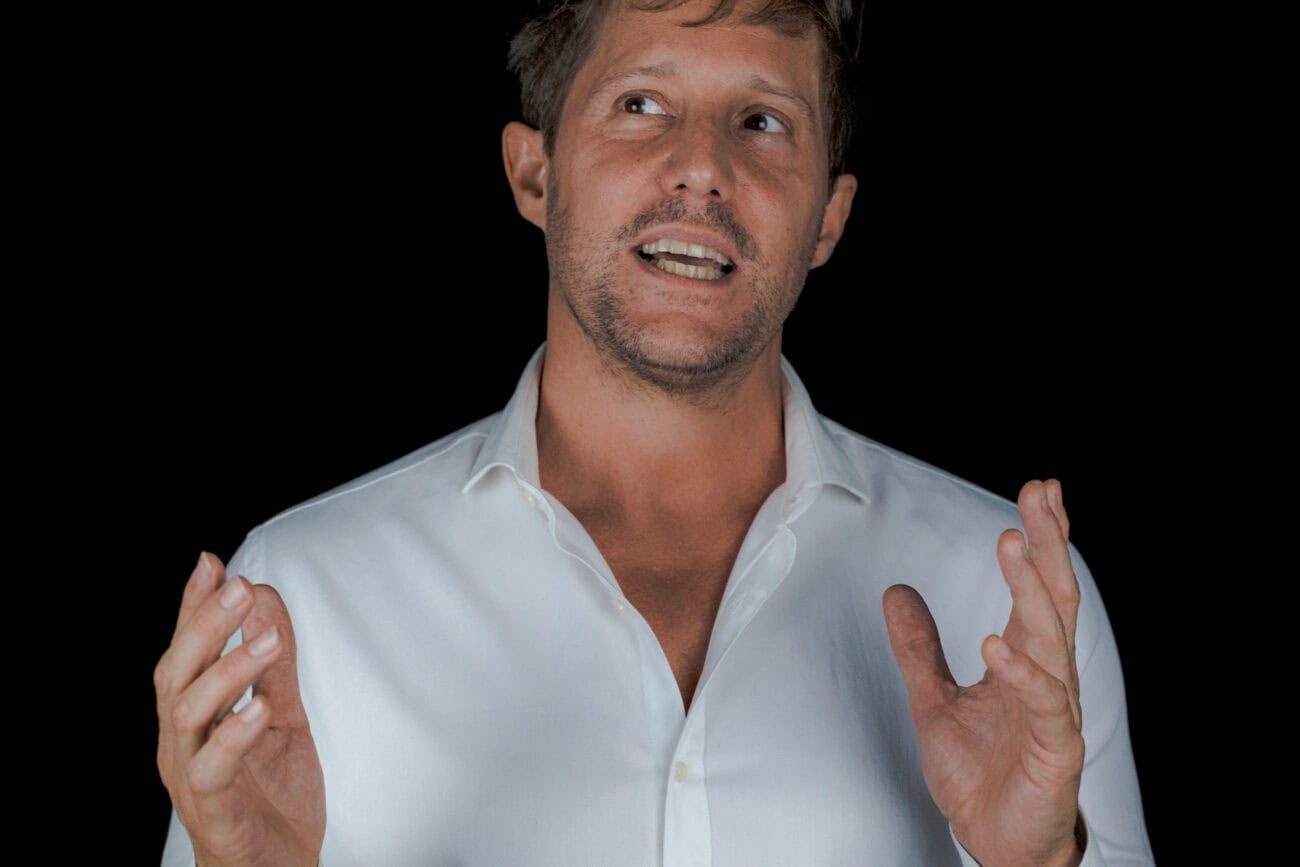In search of my American DNA
There are many good reasons to hire an accent coach to help with accent correction.
If your job description includes communication in any capacity (and really, which job doesn’t?), mastering your accent will definitely make you a better communicator. Accent work will improve your delivery, boost your confidence and shorten the distance between you and your audience.
What led me to seek an accent coach
After a good amount of years living and working in New York, it was a matter of identity. Honestly, in all the years I spent in New York, I never felt I had to sound fully American. Having said that, many of the people I love and admire are American. My influences, the historical and present-day figures that have inspired me, the friends and partners I have loved, often came from some corner of this wonderful and complicated country. But I never really thought I belonged to this nation or even wanted to.
And then, during a period in which I was taking a break from New York, the unexpected realization came up: I am American. I feel and think American. A strange realization, and like for so many, probably long in the making. It was this discovery that ultimately led me to decide to work on my American accent with the help of Rochel deOliveira, the founder and director of AccentsOff Speech and Voice Improvement. Little did I know how the journey to my American Accent would actually turn into a revealing descent into my American Identity.
Accent Correction Lesson #1: You might not sound like yourself for a while… and that’s OK
What was keeping me from changing was probably the same reason many people cling to their original  accent after decades living and working far from home. It is a way of maintaining and somehow sheltering your identity in a foreign environment. If I lost my accent, wouldn’t that mean losing a part of myself? If I sounded too American, would I still sound authentic and sincere? I would soon discover that quite the opposite was true.
accent after decades living and working far from home. It is a way of maintaining and somehow sheltering your identity in a foreign environment. If I lost my accent, wouldn’t that mean losing a part of myself? If I sounded too American, would I still sound authentic and sincere? I would soon discover that quite the opposite was true.
Working on my accent has given me the confidence to incorporate more of myself in my American voice
By mastering pronunciation and delivery, I have become more fluent, more confident, freeing myself up to really express myself. In short, having control over my accent has allowed me to be as spontaneous and “me” in English, my second language, as I am in my mother tongue.
Rochel’s approach to accent correction
Rochel’s particular approach was already present in the evaluation, but it was during the sessions that I saw her expertise on full display. I was correcting my accent, but I was also learning a lot about accent and voice.
Also, I really liked and admired the mood Rochel brought into the sessions. At times, this mood would be casual, playful. At others, during the process of getting a sound right which had suddenly become a difficult hurdle, she would display the warm detachment of an elegant surgeon who is about to operate on one of your most ‘natural’ tools: your voice. And it worked wonderfully.
Precision, warmth, a clear line of instructions and practice suggestions, with supporting materials that make my progress easy to measure: that was the package I was receiving weekly as I explored my accent. As months went by, I got to hear about other clients and meet other members of Rochel’s team, and it is clear that the care and precision Rochel brings into her classes are values spread across her company.
I found it important that I was getting all those things in my very first session.
Along with some warm-up exercises that make American sounds easier to pronounce, what I got out of that first session was a pretty wild discovery: You don’t have a bad accent, the position of your mouth just needs fixing.
Here is the thing: the way sound resonates in your throat, on the back of your palate, along with the level of relaxation and tension of your jaw, accounts for a great percentage of what makes American Accent sound so American. Modifying this will not happen just by chance. You have to know. And know I did. I will not reveal yet the secret of how this magic happens, for you should have the experience yourself. But I will tell you this: I could feel my face and body change from MYSELF into an AMERICAN FEEL.
The process is fast and fun, and it has a name: Oral Posture.
After all these years of speaking English, my oral posture still had the “dial” set on “Spanish”. I could also see how my Spanish personality was getting in the way of my American accent, as I will soon explain. Also, there is the aforementioned trend to keep our identity, the flavor we brought from home, when we live abroad – and our accent is part of that.
But there is another interesting factor. Many Americans, especially in New York, find certain accents “interesting”, “exotic”, or “sexy”, so the fact of having an accent ends up becoming part of your social persona. No wonder it took me so long to get interested in the idea of working on correcting my accent.
Being a Spaniard trying to speak American posed some technical challenges for me.
My accent correction training started with learning the range of vowel sounds. In Spanish these are pretty straightforward: A E I O U. Pronounced as written. Our vowels tend to always sound the same, no matter what comes before or after them. So for years, I would pronounce the same “O” sound when I said “Oprah”, “John” or “constant”, much to the delight of my American students and friends. And this is just one of many examples.
But there were also some challenges that we could call cultural
When it comes to Spaniards, there is a certain emotional intensity in our delivery, including our gestures, that, in my case, made it sometimes difficult to keep my oral posture under control. Where I come from, conversations tend to be a little more chaotic: fast-paced, staccato, bravado, multiple voices constantly overlapping or interrupting one another. If you want to be heard in Granada, you have to be funny, entertaining or, at least, louder and more imposing than the rest. It’s the name of the game there (and unfortunately a challenge for shy people).
So I did a little experiment that proved to be successful
It was easy and very revealing. I am sure actors do similar things when they are working on their accents. Basically, I decided to develop a calmer speaking persona to keep my “Spanish-ness” from getting in the way too fast too soon. I slowed down a bit when talking and made my body language follow my words, instead of letting my hands and gestures precede my speech, or join it in a wonderful orchestration of movement and sound.
This little trick takes less than one second and is enough to show a drastic change. Also, it was easy to internalize this practice. And as I grew more comfortable with my new accent, my Spanish personality naturally found its place inside my new American voice.
Soon I realized I could sound American, even say certain outrageous things that Americans would be cautious about, without losing one millimeter of my Spanish-ness.
Another striking thing we should have in mind when it comes to changing your accent
The better you already know the language, the harder it is to operate on it. It is just like the technical problems you run into on a musical instrument when you are self-taught. In a way, and that was my case, you have to relearn the language you already know.
In this sense, there is something that Rochel said during one of our lessons that really stayed with me:
You will not sound like yourself for a while… and that is OK.
Simple, right? Well, that is probably one of the key elements in accent training, as in other learning experiences. You have to put yourself, the image, the sense you have of yourself, in between brackets for a while. You have to take a temporary break from “yourself”. I would also add that it is actually nice. Who doesn’t need a rest from his or herself every now and then?
Overcoming the first psychological barrier in accent correction work felt like added liberation to me
And it makes complete sense when you think about it.
First, because you need time and practice for your personality to slip naturally into this new accent. Second, because this process will allow you to explore new aspects of that new personality. Working on your accent means de-automatizing the way you speak, and this will affect the way you think, the way you communicate, and the way others perceive you. Accent work is a learning process, and you will learn a lot about yourself on the way. That was certainly the case for me.
Exactly like an actor creating a new character, you need to ease your way into your new accent. You might feel a little self-conscious at first, so it is a good idea to start practicing in front of new people who don’t have a preconception of what you’re supposed to sound like, as your friends and colleagues do.
I can imagine that the experience will be different for each person, depending on their nationality and language proficiency level. But I am sure most people would agree with the basic principles and practices that I am about to share. Some of them came directly from Rochel. Others were suggestions and comments that I realized could be expanded into actual strategies.
So here is my take on it!
An American Voice: How accent correction training resonates all across your life
To illustrate Rochel’s approach, I would like to share with you some of my favorite techniques and insights learned in her accent reduction classes:
- In the beginning, it was the yawn!
This is one of the key discoveries I got out of my first class with Rochel. Not that she would teach you how to yawn properly in American English (though I am sure she could). But recalling the act of yawning, which your body, face, and facial muscles know so well, brings you straight into the oral posture you need in order to sound American. This is followed by a series of vowel exercises with completely relaxed features, bringing sound into the physical oral posture already prepared by the yawn.
So just remember: Yawn before you talk.
- Imitate the best!
Be ready to have fun with this one. Your favorite actresses or actors are closer to your mouth than you think. You will work with a small YouTube scene (1-2mins), and a script of that scene, which is normally a monologue from a very famous movie or series. Once your oral posture and basic exercises have set the right attitude, you get the added stimuli of sounding like Actor X or Y. You will work on this during your session and practice it at home.
As a side effect, you will end up having an arsenal of cool Hollywood/Netflix lines to impress your friends with, which is nice!
- Listening to sound, not content
Now, this is something that Rochel emphasized in class. We were practicing the S/Z (Voiceless/Voiced) sound: Spanish speakers absolutely disregard that difference. We just do the voiceless S and forget about all the chances in which the S will actually come out with a slight vibration in the throat. I was not getting it, and she advised me to start paying attention to random conversations in the subway or in the street.
The idea was to get a notion of how pervasive that Z sound is. Even if you are not that close, and cannot hear what people are actually saying, you are going to hear that Z, Z, Z sound coming from the “has”, “these”, etc. This attentive listening made me realize how little of this Z I was actually pronouncing. It helps a lot and it is a lot of fun. (It is also a great way to stop being annoyed at what people are actually saying and start enjoying the melody and the peculiarities of their soundscape of vowels and consonants!)
- Practice with new people
This one came from my realization that my Spanish personality could ‘get in the way’ much more with friends and old acquaintances. Conversational habits are triggered and can cover up your new accent. This brought me to try out my new accent in random interactions with strangers: in the street, at the store, at the cafe, waiting in line… Just a little chit-chat, anything from 30 seconds to 2 minutes, where I could prepare before talking and step back a little before answering. Using common everyday sentences, instead of trying to sound clever and funny (something I can blame on my Spanish-ness too, I guess), helped a lot. So I would recommend practicing these mini-interactions daily. Showing off your new accent is also a great incentive to meet new people.
These four strategies, along with the discoveries I have shared on body language and identity, are more than enough to get you onto the right track. If you are thinking about working on your accent correction, I hope my experience will help you make the decision.
Finally, here are the 3 essential steps you will need to take if you are serious about working on your accent`:
- You will need an expert
You can’t do it by yourself or with the help of friends, co-workers, girlfriends, boyfriends, lovers, etc. There is a critical point we all reach by natural development. And if you have not crossed it and become American by osmosis, your accent will be forever stuck in some middle-ground. This is very delicate work, so you need the guidance of an expert. - You will need a new attitude
Working on your accent, especially if you already have some proficiency in the language, is a gradual process. But the decision to leave your communication habits behind and slide into new ones is not gradual. It IS a decision, and you need to understand that you will not be yourself for a while. Fall in love with that break from yourself, and have some fun with it. Some days your new attitude will be there naturally, others you will have to get into the character. For some weeks or even months, it will come and go, depending on where you are in the process, and how tired or excited you are feeling. And it is all good. - C. You will need 1 hour daily
You will soon see that a lot of the work on accent correction is done directly in the field: when you meet a friend or someone new, when you listen to other people talking in the subway, when you are ordering food, or chatting with a waiter. That will happen naturally. But you will feel much more secure in your skills if you keep a good rhythm in your studies. Basically, you just need to have a quiet hour in which you go back to the specific sounds or imitation work you have learned that week. You have the sheet with the examples and a beautiful recording done by Rochel herself. You listen, repeat, and record yourself to see how are you sounding. I also like sometimes going over the recordings of our actual sessions. Not only were they fun to listen to, but also I could hear myself moving nicely between my original accent and my new, ever-more-natural American accent.
Ernesto Estrella, director of the Nomadic School of the Senses and creator of the Pi Point Method, is a member of the Thoreau Society, and a Thoreau translator into Spanish. With a Ph.D. from Columbia University, he also worked as Assistant Professor of Contemporary Poetry at Yale University. An author and performer, he is also the co-founder of The Voice Observatory, a music and sound art research platform funded by the Senate of Berlin.





